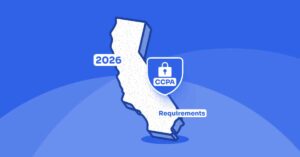An Overview of PIPEDA
The Personal Information Protection and Electronic Documents Act (PIPEDA) of Canada is a federal privacy law that applies to organizations that collect, use, and disclose personal information during commercial activities. PIPEDA establishes standards for the protection of personal information and privacy in the private sector. Adhering to PIPEDA helps to prevent private sector organizations from misusing individuals’ personal information for commercial purposes. As a business operating in Canada, it is essential to ensure that you are complying with the Personal Information Protection and Electronic Documents Act (PIPEDA).
Ecommerce businesses, in particular, have a responsibility to ensure that they are complying with the Personal Information Protection and Electronic Documents Act (PIPEDA), as they often collect and use a large amount of personal information from customers in the course of their business. In this article, we will explore the key elements of PIPEDA compliance for eCommerce businesses operating in Canada and discuss the steps that these businesses can take to ensure that they are meeting their obligations under the law.
Definition of eCommerce and the Personal Information Protection and Electronic Documents Act (PIPEDA)
Ecommerce is the buying and selling of goods and services over the internet. It allows individuals and businesses to purchase products and services from other companies or individuals online without the need for physical interaction or a brick-and-mortar storefront. Ecommerce can include a wide range of activities, such as online retail sales, electronic payments, online auctions, and more.
The Personal Information Protection and Electronic Documents Act (PIPEDA) is a federal privacy law in Canada that applies to organizations that collect, use, and disclose personal information during commercial activities. PIPEDA sets out the ground rules for how organizations can handle personal information, including requirements for obtaining consent, keeping personal information accurate and secure, and providing individuals with access to their own personal information. The Personal Information Protection and Electronic Documents Act (PIPEDA) applies to both online and offline activities and organizations in all sectors, including eCommerce businesses.

Importance of PIPEDA compliance for eCommerce businesses
The Personal Information Protection and Electronic Documents Act (PIPEDA) sets out rules for how organizations can collect, use, and disclose personal information in a way that respects the privacy rights of individuals. This is particularly important in the context of eCommerce, where personal information is often collected and used to facilitate transactions and deliver goods and services. Compliance with the Personal Information Protection and Electronic Documents Act (PIPEDA) is vital for eCommerce businesses for several reasons.
Legal compliance
PIPEDA is a federal law that applies to organizations operating in Canada. Ecommerce businesses that fail to comply with PIPEDA may face legal consequences, including fines and other penalties.
Customer trust
Ecommerce businesses rely on the trust of their customers to succeed. Customers are more likely to trust companies that protect their personal information and handle it responsibly. Compliance with PIPEDA helps eCommerce businesses build and maintain trust with their customers.
Reputation
Data breaches of personal information, security breaches, or a failure to comply with the Personal Information Protection and Electronic Documents Act (PIPEDA) can damage an eCommerce business’s reputation. This can lead to lost customers and revenue.
International trade
Many eCommerce businesses operate on a global scale. PIPEDA is consistent with international privacy standards, which can help eCommerce businesses operate in other countries and trade with international partners.
Overview of the Personal Information Protection and Electronic Documents Act (PIPEDA)
PIPEDA sets out rules for how organizations can handle personal information in a way that respects the privacy rights of individuals. It requires organizations to obtain meaningful consent from individuals before collecting, using, or disclosing their personal information and to handle that information in a way that is reasonable and appropriate.
This privacy Act applies to personal information in any form, including paper records and electronic records. It applies to organizations that operate in Canada, as well as organizations outside of Canada that collect, use, or disclose personal information about individuals in Canada. PIPEDA is administered and enforced by the Office of the Privacy Commissioner of Canada, which has the authority to investigate complaints and take enforcement action against organizations that violate the Act.
Overall, PIPEDA is an important piece of legislation that helps to ensure that organizations handle and protect personal information in a responsible and respectful manner.

Key provisions of PIPEDA relevant to eCommerce
There are several key provisions of PIPEDA that are particularly relevant to eCommerce businesses, such as:
Consent
PIPEDA requires organizations to obtain consent from individuals before collecting, using or disclosing their personal information. Ecommerce businesses must ensure that they have obtained the necessary valid consent from customers before collecting, using, or disclosing their personal information.
Purpose specification
PIPEDA requires organizations to specify the purposes for which they collect, use, or disclose personal information. Ecommerce businesses must be clear and transparent about the intentions for which they collect personal information from customers.
Limiting collection
PIPEDA requires organizations to collect only the personal information that is necessary for the purposes that have been identified. Ecommerce businesses must be mindful of this requirement and ensure that they do not collect more personal information than is necessary.
Security safeguards
PIPEDA requires organizations to protect personal information with appropriate security safeguards. This includes appropriate security measures to protect personal information from unauthorized access, disclosure, or misuse. Ecommerce businesses must ensure that they have appropriate security safeguards in place to protect the personal information of their customers.

Access and accuracy
PIPEDA gives individuals the right to request access and correct their personal information if they are inaccurate or incomplete. Ecommerce businesses must have processes in place to allow customers to access and correct their personal information.
These are some of the critical provisions of PIPEDA that are relevant to eCommerce businesses in Canada. Compliance with these provisions is essential to ensure that eCommerce businesses handle personal information in a way that is legal, transparent, and respectful of the privacy rights of individuals.
Ecommerce specific considerations
Ecommerce specific considerations for PIPEDA compliance include the collection, use, and disclosure of personal information, the use of cookies and tracking technologies, online payment processing, and email marketing and customer communications.
Collection, use, and disclosure of personal information
The collection, use, and disclosure of personal information is a crucial consideration for eCommerce businesses. PIPEDA requires organizations to be transparent about their collection, use, and disclosure of personal information and to obtain the consent of individuals before collecting, using, or disclosing their personal information.
Ecommerce businesses may collect personal information from customers through online forms, cookies, and other tracking technologies and may use this information for a variety of purposes, including marketing and customer service. It is important that eCommerce businesses are clear about their collection, use, and disclosure of personal information and obtains the necessary consent from customers.
Cookies and tracking technologies
The use of cookies and tracking technologies is another consideration for eCommerce businesses. PIPEDA requires organizations to obtain the consent of individuals before using cookies or other tracking technologies to collect personal information. Ecommerce businesses often use cookies and tracking technologies to improve the customer experience, but it is vital that they obtain the necessary consent before doing so.
Online payment processing
Online payment processing is an essential consideration for eCommerce businesses as it involves handling sensitive personal information and financial details. PIPEDA requires organizations to protect the security of personal information during online payment processing, including the use of appropriate technical measures to protect against unauthorized access or disclosure of personal information. Ecommerce businesses must ensure that personal information is secure during the payment process, including the use of secure payment gateways and encryption technologies.

Email marketing and customer communications
Email marketing and customer communications is another important consideration for eCommerce businesses. PIPEDA requires organizations to obtain the consent of individuals before sending them commercial electronic messages (e.g. emails). Ecommerce businesses may use email marketing as a way to communicate with customers and promote their products or services. Still, it is important that they obtain the necessary consent before sending emails.
PIPEDA compliance checklist for eCommerce businesses
If the data protection legislation applies to businesses that are regulated by the PIPEDA, the checklists can help the business meet the requirements to comply with the law.
PIPEDA compliance is important for eCommerce businesses in order to protect the privacy of their customers and to ensure that personal information is collected, used, and disclosed in a responsible manner. To ensure compliance with PIPEDA, eCommerce businesses should follow a PIPEDA compliance checklist that includes establishing a privacy policy, obtaining consent for data collection and use, ensuring data security, and responding to customer requests for access to their personal information.
Establishing a privacy policy
Establishing a privacy policy is the first step in ensuring PIPEDA compliance. This should outline the types of personal information the organization collects, how it is collected, used, and disclosed, and the measures in place to protect personal information. It is essential that the privacy policy is easily accessible to customers and is reviewed and updated regularly.
Obtaining consent for data collection and use
Obtaining consent for data collection and use is another vital aspect of PIPEDA compliance. PIPEDA requires organizations to obtain the explicit consent of individuals before collecting, using or disclosing their personal information. Ecommerce businesses should obtain consent through opt-in forms or other means and ensure that consent is obtained before collecting, using, or disclosing personal information.
Ensuring data security
Ensuring data security is also critical for PIPEDA compliance. PIPEDA requires organizations to protect the security of personal information through the use of appropriate technical and organizational measures. Ecommerce businesses should implement measures such as encryption, secure payment gateways, and robust access controls to protect the security of personal information.

Responding to customer requests for access to their personal information
Finally, eCommerce businesses should have processes in place to respond to customer requests for access to their personal information. PIPEDA grants individuals the right to request access to their personal information held by organizations and to request corrections to any inaccuracies. Ecommerce businesses should ensure that they are able to respond to these requests on time and provide customers with access to their personal information as necessary.
Best practices for PIPEDA compliance in eCommerce
PIPEDA compliance is essential for eCommerce businesses to protect their customer’s privacy. To ensure compliance with PIPEDA, eCommerce businesses should adopt best practices such as regularly reviewing and updating privacy policies and procedures. Also, providing clear and concise information to customers about data collection and use and implementing appropriate technical and organizational measures to protect personal data.
Regular review and updating of privacy policies and procedures
As eCommerce businesses collect, use, and disclose personal information, it is essential to regularly review and update privacy policies and procedures to ensure ongoing compliance with PIPEDA. This includes reviewing and updating the privacy policy and implementing and reviewing the appropriate technical and organizational measures to protect personal information.
Providing clear and concise information to customers about data collection and use
Ecommerce businesses should be transparent about their collection, use, and disclosure of personal information and provide customers with clear and concise information about how their personal information is being collected and used. This can be done through the use of clear and concise privacy policies, as well as through in-app or website notifications and other forms of communication.
Implementing appropriate technical and organizational measures to protect personal data
This includes measures to protect against unauthorized access or disclosure and efforts to ensure the integrity and confidentiality of personal information. Ecommerce businesses should consider implementing measures such as encryption, secure payment gateways, and robust access controls to protect the security of personal information.

Conclusion
Ecommerce businesses operate in a constantly evolving environment, and it is vital for them to stay up to date with changes to data privacy laws and best practices. PIPEDA compliant eCommerce businesses can protect their customer’s privacy and ensure that personal information is collected, used, and disclosed responsibly. Regularly reviewing and updating privacy policies and procedures is crucial for eCommerce businesses to ensure ongoing compliance with PIPEDA.
In summary, eCommerce businesses need to be proactive in their efforts to ensure PIPEDA compliance to protect their customers’ privacy and maintain their audience’s trust. By following the PIPEDA compliance checklist and best practices outlined above, eCommerce businesses can ensure compliance with the Personal Information Protection and Electronic Documents Act (PIPEDA) and operate in a responsible and transparent manner.




